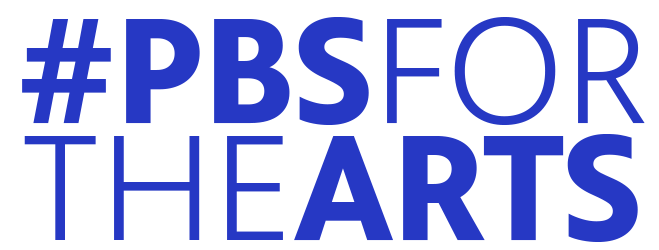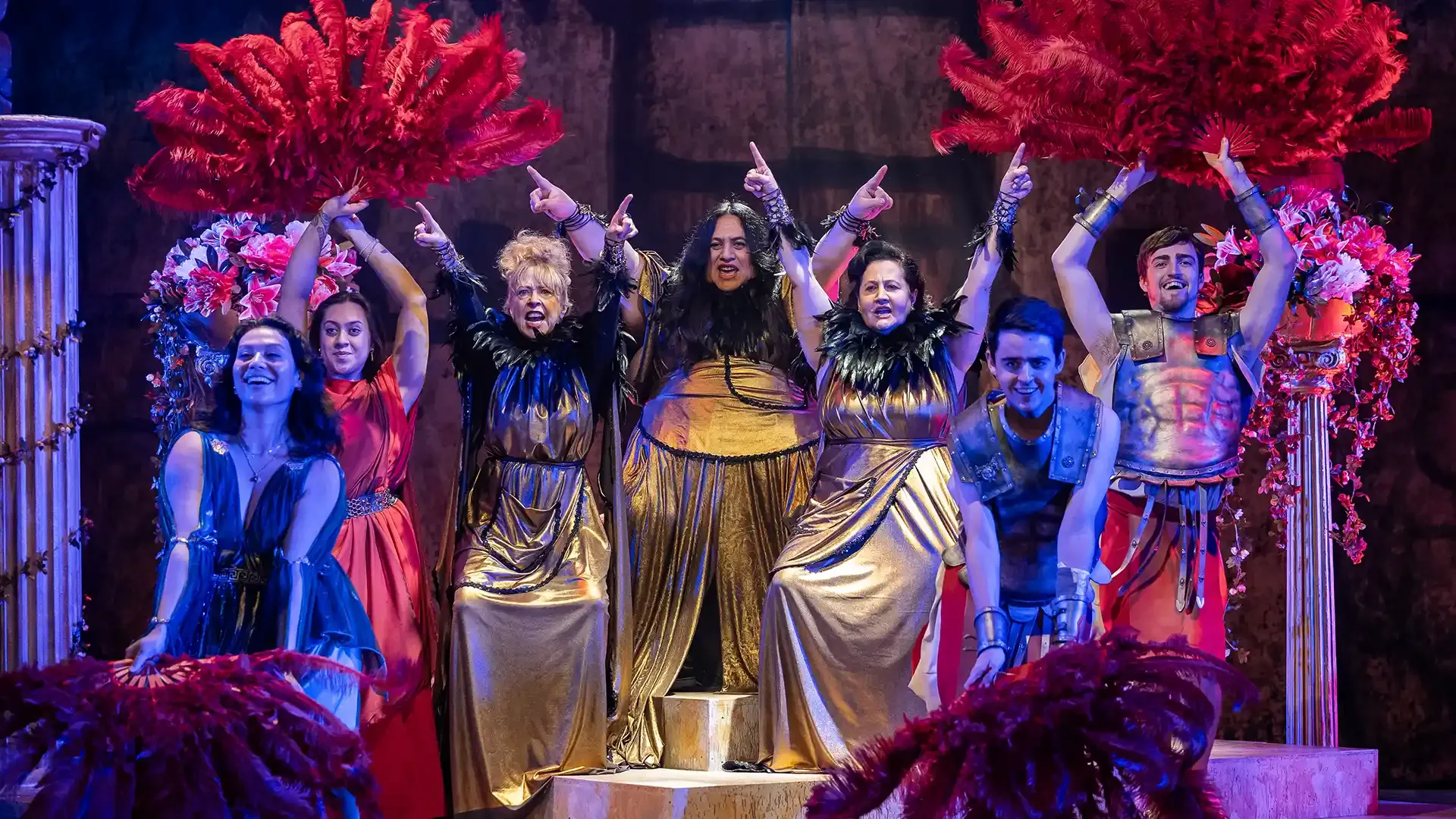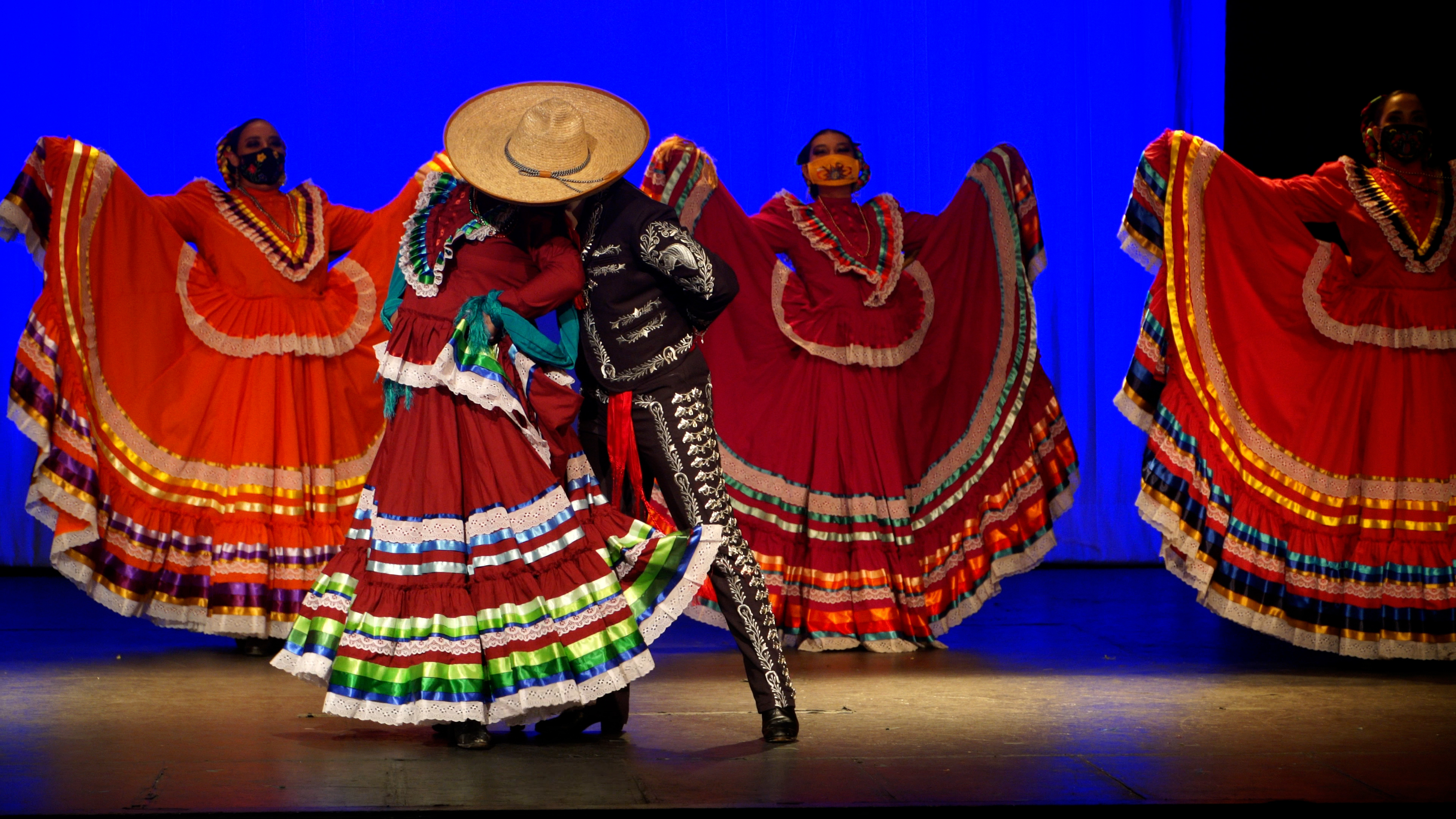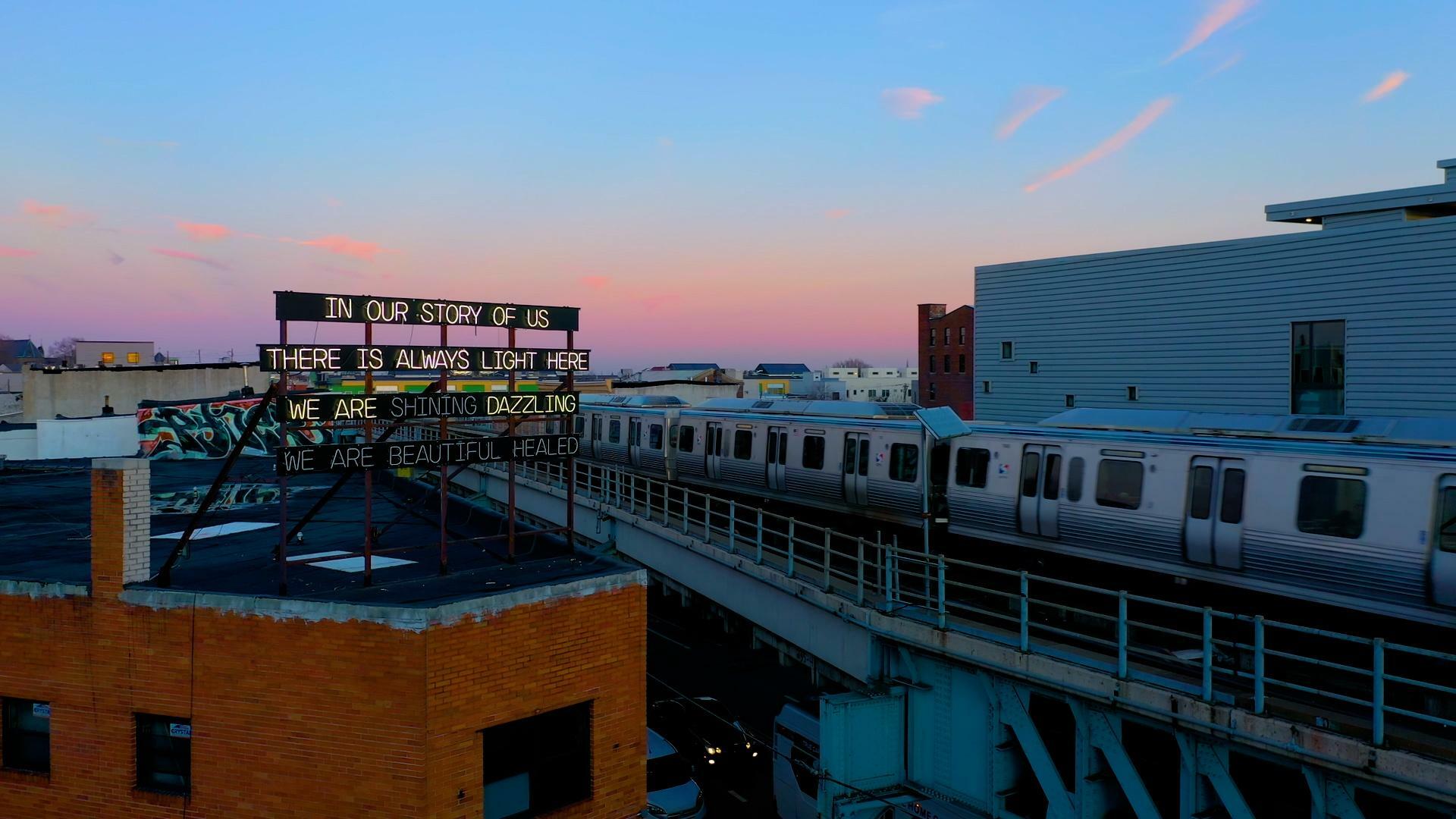As part of #PBSForTheArts, a multiplatform campaign from PBS and The WNET Group celebrating the resiliency of the arts in America during the COVID-19 pandemic shutdown and reopening, we’re pleased to present a series of artist interviews spotlighting the inspiring pandemic survival stories of artists across the country. From Broadway dancers and concert performers to classical musicians, visual artists, and beyond, discover how these creative, resourceful artists have kept the arts vivid and vital during the pandemic.
In the following interview, Chelsey Hill, a dresser at The Metropolitan Opera and illustrator, talks about the colorful backstage life of a NYC dresser, the creative projects that have kept her inspired during the pandemic, and more.
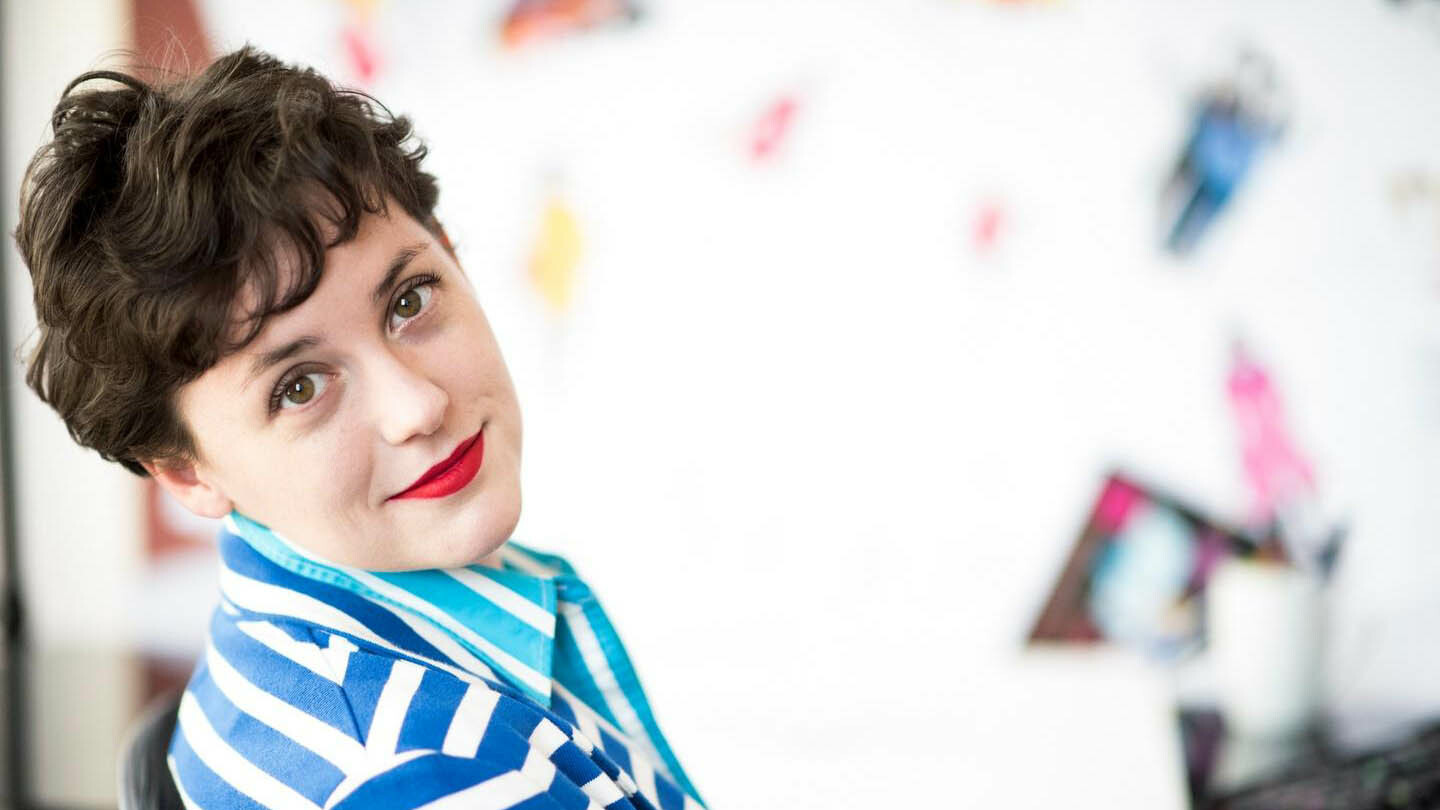
How long have you been a dresser at The Metropolitan Opera, and what does the job involve?
I started working at The Met in the fall of 2019. Dressers have to be master multi-taskers and quick on their feet. I did basic repairs, day work, prepped costumes, learned dressing tracks, set up and helped with quick changes, checked that costumes were on correctly before stage entrances, anticipated performers’ needs, and made sure costume pieces were hung and stored in the right place after performances. I dressed between 3-20 performers per show, usually with multiple costume changes each. My days were long, with rehearsals starting at 10 a.m. and performances ending on average around 11 p.m. I typically worked on 3-5 shows at a time. I got to do some pretty cool and unusual things like handle a fuel-soaked fire dancer’s headdress and hang backstage with a python. Add dodging massive moving set pieces to the mix, and you’ve got the life of a NYC dresser.
What do you love most about working at The Met, and what do you miss about it?
Opera is one of my great loves, so working in one of the best opera houses was a dream for me. Obviously hearing gorgeous singing everyday was an amazing perk. I’ve always loved working with costumes and The Met has some pretty spectacular ones. I like working with performers, and I can handle the chaotic energy that comes with live theater. The job was fast-paced, and I was never bored. My fellow dressers were amazing. We were a diverse group in age, background, and unique talents. I made some incredible friendships there. I really miss working with the opera chorus. They are a fabulous group of people.
Chelsey's Illustrations





What was it like receiving the news that The Met’s 2020-2021 season was cancelled?
It was expected, though I could have never imagined how long the shutdown would last. During the first part of March, everyone was on edge about COVID. We had a lot of international singers flying in for performances and rehearsals. I remember about a week before the shutdown, one of our leads flew home to Italy to be with his family before the country locked down. It was a very stressful week leading up to the closure.
In addition to your work at The Met, you have a career as an illustrator. Has your design work been able to sustain you during the pandemic?
My illustration work tripled during the pandemic, which was a saving grace with the majority of my income disappearing overnight. I suddenly had the time to focus on creating illustrations for products, as well as work on personal projects and series. This momentum led to some awesome commissions and collaborations. I got to create works for a lot of artists and music organizations, including the Met Chorus Artists, The Boulanger Initiative, and Lara Downes. I illustrated my first book cover, as well as hit a personal goal of being a LinkNYC feature with one of my collaborators, Urban Haiku -- which was thrilling! On this front, things have not been bad.
What has been the most difficult thing for you as an artist and member of the performing arts community during the pandemic?
Seeing the displacement of my community has been awful and heartbreaking. More than half of my peers have left the city. It’s been an eye-opening experience, and honestly made me question whether or not I should continue to work in theater. It’s a fragile system, and the pandemic has shown some of the less pleasant sides of the performing arts industry.
What has helped you maintain a sense of hope and optimism during these challenging times?
Collaborations and learning new skills have always been a way for me to get out of my head and move forward. I started a jewelry brand, Baba Bougie, with my friend and roommate, Jelena Antanasijević. We met at The Met Opera, and with the shutdown we figured it was time to collaborate and create something fun. We’re both illustrators with backgrounds in costume design. Our brand is glamorous, eccentric, and most importantly, has a sense of humor. Building something from the ground up has been a great creative outlet and way to cope with the stress of the unknown. Coffee also helps.
Support your local PBS station in our mission to inspire, enrich, and educate.
You spent several months of the pandemic back home in Nebraska. What ultimately made you decide to return to New York?
I was still paying rent when I was back home with my parents and siblings. I just knew I couldn’t make the decision in Nebraska. I flew back to New York City in the summer and had two months to decide if I was staying or going. Once I was back, things just fell in place where it made sense for me to stay. I still have more to do here. I’m not done with her yet.
What’s next for you?
Right now, my focus is growing my illustration clientele, creating works that celebrate performers and musicians, and working on my jewelry business. I’d like to think I’ll be dressing again, but I’m realistic that I might need to look elsewhere for steady income. I’m currently working for KoKo NYC and Camba Inc. as a teaching artist for an afterschool program. It’s a joy as well inspiring to work with kids on awesome art projects.
To learn more about Chelsey Hill, visit her website or follow her on Instagram.

The best of PBS, straight to your inbox.
Be the first to know about what to watch, exclusive previews, and updates from PBS.
